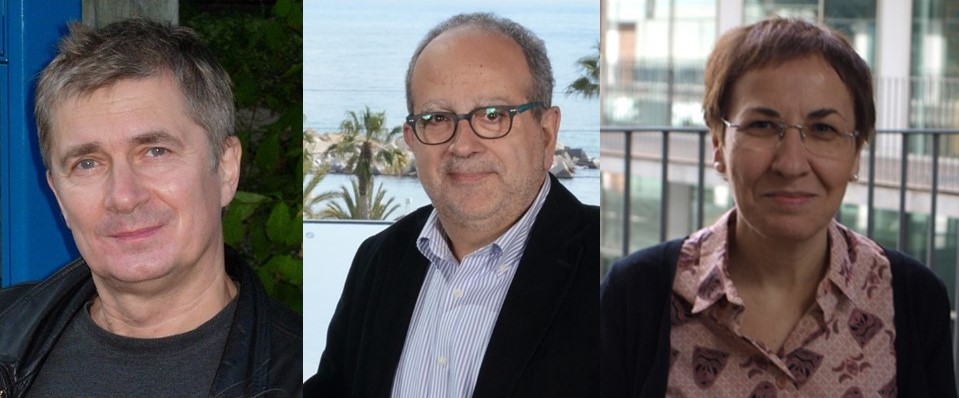UPF researchers lead three of the twenty “La Caixa” Banking Foundation biomedical research projects
UPF researchers lead three of the twenty “La Caixa” Banking Foundation biomedical research projects
On 25 July, the foundation presented the projects selected in its first open and competitive biomedical research call.

On Wednesday 25 July, the 20 projects selected in the first call created by the “La Caixa” Banking Foundation in the health category were announced, to which it awards 12 million euros per year. UPF researchers David Andreu, Andreas Meyerhans and Pura Muñoz are leading three of the twenty selected projects which focus on research into Zika, chronic infectious diseases, and organ and tissue regeneration.
785 research projects for this first call for proposals were submitted by research centres, hospitals and universities in Spain and Portugal, of which 20 have been selected following a competitive selection process. The programme aims to promote projects of excellence in the fight against diseases that have a major impact in the world, such as cardiovascular, neurological, and infectious and oncological diseases.
New strategies to fight Zika
The Zika virus is a global threat that is transmitted by the bite of the Aedes aegypti mosquito. In recent years, globalization and climate change have helped spread the virus to more than seventy countries around the world. Brazil is one of the most affected, especially since the outbreak in 2015.
The main risk group are pregnant women. The virus is capable of crossing the placental and blood-brain barriers of the foetus and cause microcephaly and other neurological problems in new-borns that can have a major economic and social impact.
Until now, no effective treatment against Zika had been achieved. The project investigates new strategies to deactivate the virus through the blood-brain and placental barriers. To do so, smart molecules will be developed cable of getting access from the pregnant mother to the brain of the foetus, which will protect both the women and their babies.
The project, led by David Andreu Martínez, co-led by Miguel Castanho of the Institute of Molecular Medicine in Portugal and with the participation of Andrea Thompson da Poian (Brazil), has received 777,250 euros of funding.
Towards universal vaccine to put an end to chronic infectious diseases
Immunotherapy consists of stimulating the patient’s own defences to fight the disease. In oncology, this anti-cancer strategy has been tested in mice using a non-specific vaccine that triggers the immune system to fight the tumour.
This project aims to apply immunotherapy methods using a non-specific vaccine in chronic infectious diseases, including the AIDS virus, and hepatitis B and C, though in the latter case, no curative treatment is available. These diseases are also characterized by the loss of T-cell functionality, an important type of defences against the pathogen which, by losing their antiviral capacity, allow the infectious agent to grow uncontrollably. The aim is to design a universal therapeutic vaccine that can intervene in the curing of several chronic viral infections. Currently, these patients require life-long medication. This type of treatment has adverse effects on their health and a high cost for health systems. Therefore, a universal therapeutic vaccine could help to tackle this global challenge.
This project, led by researcher Andreas Meyerhans and co-led by Christian Brander of IrsiCaixa, has received funding of 484,316 euros.
Rejuvenating aged organs and tissues
Stem cells are responsible for the regeneration of organs and tissues, but over the years their renewal capacity deteriorates. This occurs because the cell recycling mechanism, autophagy, fails, and waste accumulates inside that causes organs and tissues to age and, sometimes, age-associated physical disabilities.
Two of the basic issues of stem cell biology are how tissues keep their ability to repair and what changes the stem cells undergo during ageing to lose it.
This research project examines how to recover the cells’ regenerative capacity modulating autophagy and eliminating all changes related with the passage of time, senescence. The ultimate goal is to promote healthy ageing among the older population.
The project, led by Pura Muñoz-Cánoves, has been funded with 496,630 euros.
The results of the call can be found at this link.
